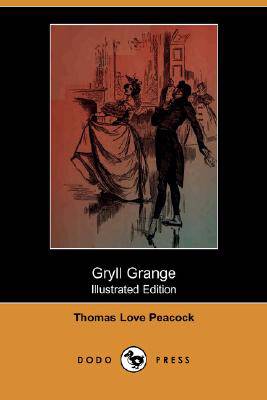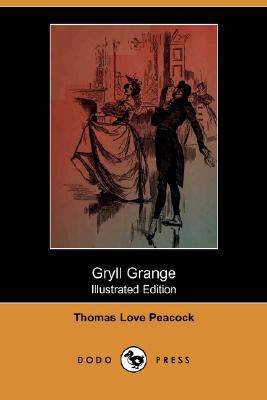
- Afhalen na 1 uur in een winkel met voorraad
- Gratis thuislevering in België vanaf € 30
- Ruim aanbod met 7 miljoen producten
- Afhalen na 1 uur in een winkel met voorraad
- Gratis thuislevering in België vanaf € 30
- Ruim aanbod met 7 miljoen producten
Zoeken
€ 18,45
+ 36 punten
Omschrijving
Thomas Love Peacock (1785-1866) was an English satirist and author. Peacock was a close friend of Percy Bysshe Shelley and they influenced each other's work. He wrote satirical novels, each with the same basic setting - characters at a table discussing and criticizing the philosophical opinions of the day. He worked for the British East India Company. His own place in literature is pre-eminently that of a satirist. That he has nevertheless been the favourite only of the few is owing partly to the highly intellectual quality of his work, but mainly to his lack of ordinary qualifications of the novelist, all pretension to which he entirely disclaims. He has no plot, little human interest, and no consistent delineation of character. His personages are mere puppets, or, at best, incarnations of abstract qualities such as grace or beauty. His comedy is Aristophanic. He suffers from that dramatist's faults and, though not as daring in invention, shares many of his strengths. His works include Headlong Hall (1815), Nightmare Abbey (1818), Maid Marian (1822), The Misfortunes of Elphin (1829), Crotchet Castle (1831), and Gryll Grange (1861).
Specificaties
Betrokkenen
- Auteur(s):
- Illustrator(s):
- Uitgeverij:
Inhoud
- Aantal bladzijden:
- 284
- Taal:
- Engels
Eigenschappen
- Productcode (EAN):
- 9781406583434
- Verschijningsdatum:
- 14/12/2007
- Uitvoering:
- Paperback
- Formaat:
- Trade paperback (VS)
- Afmetingen:
- 152 mm x 229 mm
- Gewicht:
- 417 g

Alleen bij Standaard Boekhandel
+ 36 punten op je klantenkaart van Standaard Boekhandel
Beoordelingen
We publiceren alleen reviews die voldoen aan de voorwaarden voor reviews. Bekijk onze voorwaarden voor reviews.











